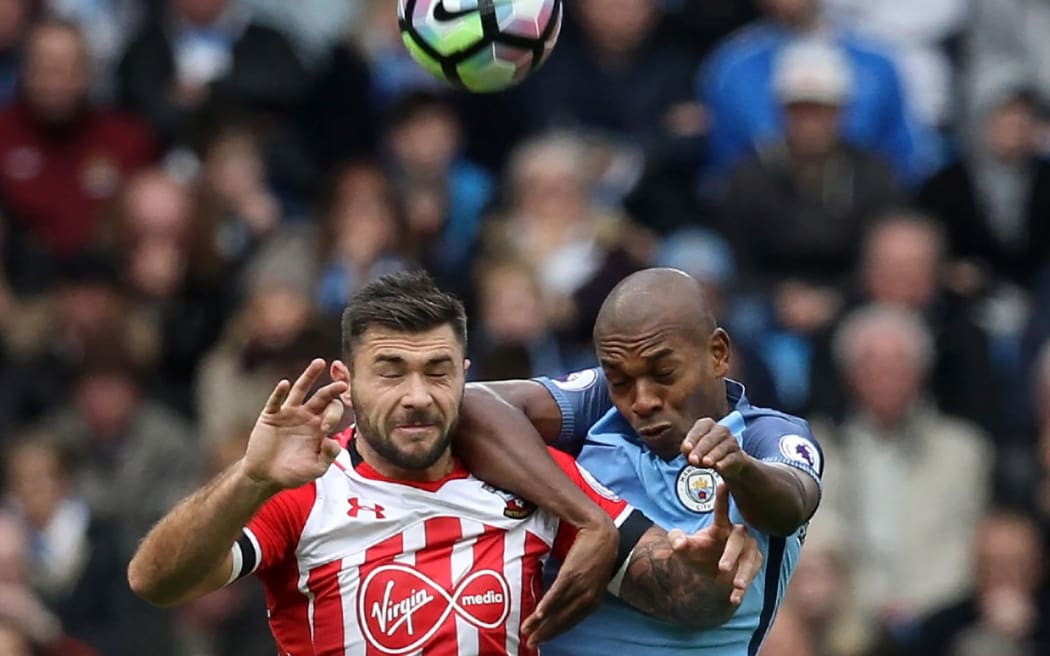Heading a football can significantly affect a player's brain function and memory for 24 hours, a study has found.
Researchers from the University of Stirling say they have identified "small but significant changes in brain function" after players headed the ball 20 times.
Memory performance was reduced by between 41% and 67% in the 24 hours after routine heading practice.

Memory performance was severely impacted by heading a football a University of Stirling study has found. Photo: Photosport
One of the study's authors suggested football should be avoided ahead of important events like exams.
The study is the first to detect direct changes in the brain after players were exposed to everyday head impacts, as opposed to clinical brain injuries like concussion.
Researchers fired footballs from a machine designed to simulate the pace and power of a corner kick and asked a group of football players to head a ball 20 times.
The players' brain function and memory were tested before and after the exercise.
Study co-author, neuropathologist Dr Willie Stewart, was asked what advice he would offer to footballers, based on his findings.

Researchers are unsure what the long term impact of heading a football has on a person. Photo: Photosport
"I think this evidence so far suggests - that if it's just a short term thing and it's just something that lasts 24 hours - I think if I were a parent of a kid who had an exam on a Wednesday, I would suggest to them perhaps that they miss football training [on Tuesday] certainly because I would want to do well in that Wednesday afternoon exam," he said.
"If you translate the evidence we've got now, we've got an immediate impairment of short and long-term memory - which does recover.
"It takes 24 hours to recover - so I would say, for that 24-hour period, if you've got something important coming up, that you shouldn't be playing football."
The university said it was yet to investigate whether the changes to the brain were temporary after repeated games of football or if there were long-term consequences on brain health.
In May this year, the Football Association said it would lead a study into possible links between football and brain diseases.
The announcement followed a campaign by the family of former England, West Brom and Notts County striker, Jeff Astle, who died from brain trauma in 2002.
A coroner described his illness as an "industrial disease", in reference to him heading leather balls.
Dr Magdalena Letswaart, a cognitive neuroscientist at the University of Stirling, said the research had been carried out in the light of "growing concern" about links between brain injury in sport and the increased risk of dementia.
"Using a drill most amateur and professional teams would be familiar with, we found there was in fact increased inhibition in the brain immediately after heading and that performance on memory tests was reduced significantly," she said.
"Although the changes were temporary, we believe they are significant to brain health, particularly if they happen over and over again as they do in football heading.
"With large numbers of people around the world participating in this sport, it is important that they are aware of what is happening inside the brain and the lasting effect this may have."
-BBC

